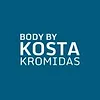When to do cardio? This is an age-old question that we will turn to in this week’s blog post. In at nutshell, and to set the record straight, the short answer is “ it depends.” Not so helpful, I know…
In general, there are three main times when people do cardio training; post workout, pre workout and in the morning (usually fasted). Now, let’s look at the reasons why the timing is important and how it relates to each person’s own fitness goals.
Post workout – If your goals are to increase lean mass and decrease body fat, doing cardio post workout is a good option. After weight training, you have depleted the stored energy in your muscles called glycogen. With glycogen level low, this puts you in an ideal state for burning fat. Therefore, if you did 20 – 30 minutes of post workout cardio, then you would be burning pure body fat because in order to burn fat, your glycogen supplies must be depleted.
Pre workout – If you’re not concerned about lean mass to body fat ratios, and you simply want to shrink yourself, then doing pre workout cardio is an option. In this situation, you are depleting your glycogen levels before doing weights, so when you start your weight training, you will be burning muscle as well as fat. Also, keep in mind that you will have much less strength and energy when you go to hit the weights. Essentially, you will become a smaller version of your unaesthetic self. You will simply occupy less space, weigh less, but in reality, you wont be looking any better…. which kind of defeats the purpose of being in the gym!
Did you know that cardio doesn’t actually burn fat, muscle does! So the number one priority when attempting to lose fat is to keep the muscle you have. Muscle tissue is metabolically responsible for most of the fat you’ll lose. Ten pounds of muscle burns 50 calories per day, even at rest…. so if you lose muscle it will be even harder to burn fat.
Morning cardio – Fasting throughout the night leaves us with very low glycogen levels when we wake up. If you go to do cardio with an empty stomach, and preferably with a cup of coffee to boost your adrenal glands, you will start burning fat within the first few minutes. If you did half an hour, you’d be burning adipose tissue practically the whole time. BUT hold up… I have to add in a warning here… doing fasted morning cardio is generally more for the advanced athlete, or when someone is cutting for a fitness competition. It does not protect muscle from being eaten up and this is due to high cortisol levels. Our cortisol levels are the highest in the morning; this cortisol spike is the natural energy boost that allows up to wake up. If you don’t eat and then head in to do cardio, it will stay elevated, and even increase throughout the day. High cortisol levels can end up putting you in a catabolic and muscle wasting state.
In general, no average person should be doing more than 20-30 minutes of cardio per session unless you are on a specific eating and supplementation program and all the macronutrients are allocated for. Doing too much excessive cardio is hard on the central nervous system and over time is detrimental to one’s health.
Overall, the absolute best way to burn the most calories from cardio is to do it when you are in a post-absorptive state, when the body has fully absorbed nutrients prior to the activity. The idea situation is to have a meal, digest, train weights (this is when all the glycogen is being used in the muscles) and THEN do you cardio post workout. This way you needn’t worry about muscle wasting while still being able to burn fat easily. Cardio should not be considered the meat and potatoes of an exercise program that is designed to build muscle and loose fat, instead, clean eating and proper weight training are the two best ways to get in to amazing shape.
Written by Angel Simmons for KostaKromidas.com

